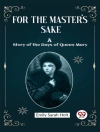In ‘John Burnet of Barns, ‘ John Buchan weaves a captivating narrative that delves into the intricacies of Scottish rural life, loyalty, and the battle between personal ambition and communal values. Written in a lyrical style marked by rich descriptions and introspective insights, the novel explores the coming-of-age journey of its eponymous protagonist, John Burnet. Set against the backdrop of the Scottish Highlands, Buchan captures the essence of a bygone era while addressing themes of class conflict, identity, and the search for belonging. The prose reflects both an immersive storytelling approach and an acute awareness of the social dynamics at play during the early 20th century. John Buchan, better known for his adventure novels such as ‘The Thirty-Nine Steps, ‘ draws from his rich Scottish heritage in creating this poignant story. His deep understanding of the Scottish countryside, coupled with his experiences in politics and the military, informs the depth of his characters. This novel emerges from Buchan’s desire to shed light on the complexities of Scottish society and the universal struggle of ordinary individuals striving for meaning in their lives. ‘John Burnet of Barns’ is a must-read for those interested in classic literature that transcends mere storytelling to offer profound reflections on human nature. Buchan’s expert craftsmanship invites readers to immerse themselves in the Scottish landscape, prompting contemplation on enduring themes of loyalty, honor, and the ties that bind us to our roots.
Over de auteur
John Buchan, 1st Baron Tweedsmuir (1875–1940), was a Scottish novelist, historian and Unionist politician who served as Governor General of Canada. He is best known for his adventure fiction, notably the espionage thriller ‘The Thirty-Nine Steps’ which has seen various cinematic adaptations. In ‘John Burnet of Barns, ‘ he tells the story of a Scottish laird on a backdrop of the pastoral Scottish Borders, displaying his characteristic blend of historical accuracy and engaging narrative. Buchan’s writing was often marked by swift-paced tales of suspense, combined with a clear-eyed representation of British imperial values. He also wrote historical works and biographies, including exemplary examinations of the Great War in books like ‘A History of the Great War’ (1921-22). Buchan’s literary style is recognized for its elegance and efficiency; it has been both celebrated for its vivid storytelling and critiqued for its dated attitudes, particular regarding empire and race. His writing remains a subject of academic interest and his novels, including ‘Prester John’ and ‘Greenmantle, ‘ are still read for their thrilling plots and insight into early 20th-century British perspectives.












